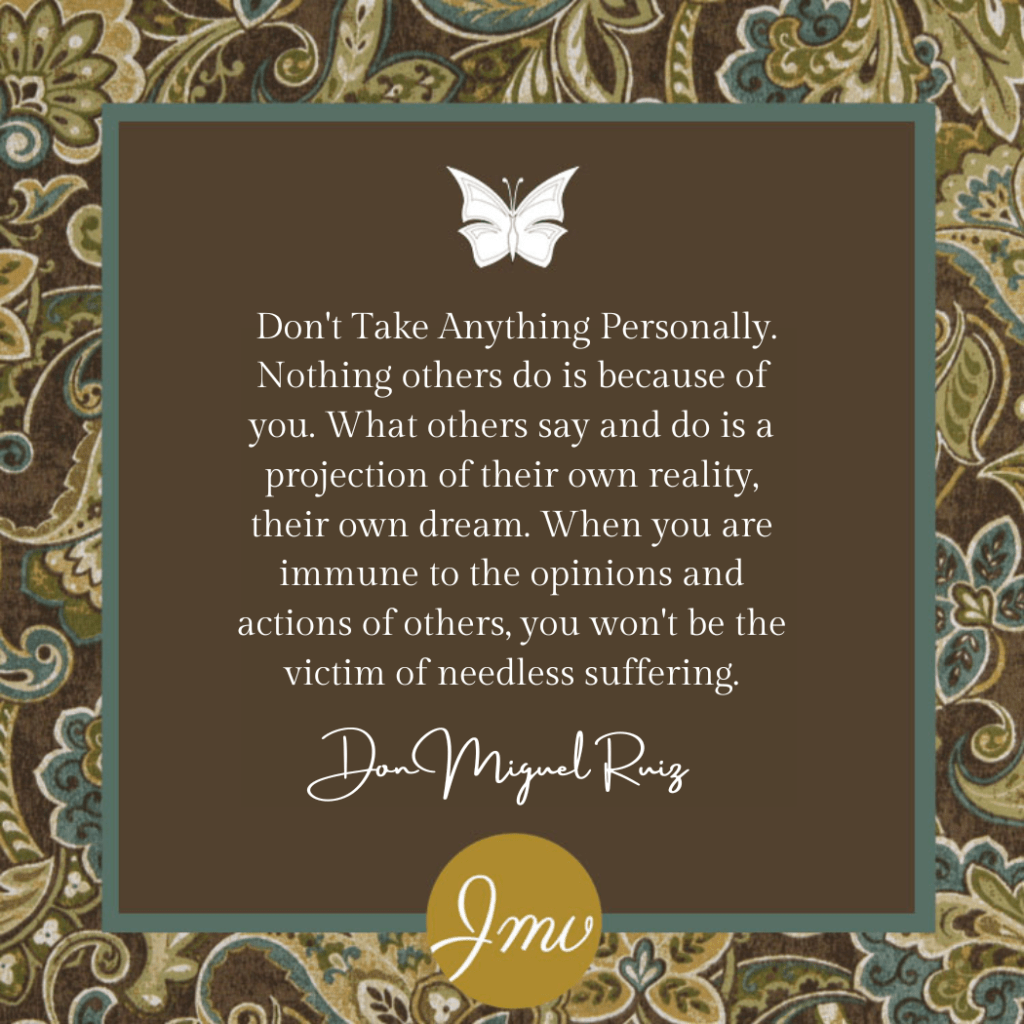A few months back, I was having lunch with a friend. She’s a single mom. She was talking about something a mutual friend of ours had said to her. The comment had upset her. She didn’t understand our other friend’s intent.
They’d been talking about housing and the mutual friend had made a comment that could be perceived probably a hundred different ways. She suggested that my worried friend apply for Section 8, which is a government rental assistance program.
The friend I was speaking with was miffed by our mutual friend’s comment. And I understood that. Comments about a person’s financial situation are difficult to interpret. Did our mutual friend perceive her as indigent? It struck at the core of my worried friend’s self-identity. Is that how people saw her?
My worried friend wanted my interpretation of our mutual friend’s meaning. I’m a woman with a high degree of empathy, often too high. It makes it hard for me not to jump in and try to fix things. My immediate reaction was that my heart sank, and I felt my worried friend’s angst. I reassured her that people don’t perceive her that way, and they don’t.
However, the mutual friend we were speaking about is one of the nicest people I’ve ever known. I can’t imagine a circumstance under which she’d intentionally slight or insult another person. In my heart, no matter how her comment came across, I assumed she had good intentions. She probably thought she was being helpful.
In hindsight, the conversation perturbed me. I disliked that my concerned friend was spending so much time analyzing something so insignificant. I disliked that our mutual friend hadn’t thought about how her commend could be misperceived. What I hated was that I was pulled into a situation that had nothing to do with me.
In hindsight, I should simply have said, “I’m sure she meant well.” That would have ended the conversation because there’s nowhere to go from there. My concerned friend could’ve kept pushing me to interpret and provide reassurance, but I could simply have kept repeating, “I’m sure she meant well.”
“I’m sure she meant well,” would have been a boundary. Regardless of how I felt about, or interpreted the situation, it had nothing to do with me, but I was pulled in. My friend’s concern became my concern. Her troubled energy disrupted my calm energy.
The situation got me thinking about how often we’re pulled into other people’s drama and how often we create our own by not having stronger mental and emotional boundaries. “I’m sure they meant well,” has since become my go-to phrase for self-protection. It helps me protect my energy. It helps me fight my codependent urge to jump in and, “help.”
However, “I’m sure they meant well,” not only helps shield one from other people’s unsettled energy, it can also diffuse our own. It can be used as a mental boundary when we begin to ruminate about situations or people that have upset our self-identity or sense of security.
About seven years ago, when I embarked on deep journey of healing and self-discovery, a person I admired had remarked, “Why do you always assume the worst?” Boom. What? I never thought I had. I’d always thought of myself as someone with a positive mindset. Yet, when I reflected on his comment, I realized that wasn’t true at all. I was ripe with judgments and criticisms.
My inner critic had emerged. My unresolved trauma was impacting how I perceived the world. I was analyzing everything and everyone. That was happening because I had few boundaries. You see, I wasn’t encouraged to have boundaries. I didn’t even know that was a thing until I was well into my 40s.
Unresolved trauma leaves us vulnerable. For me, it manifested as codependency, which meant everything was somehow directed at or involved me. That led to emotional reactivity. In the situation with my friend, my emotional reactivity was that I was upset for her. I felt her pain. I became enmeshed in her drama.

There were so many times, though, where I’d done exactly what my friend had: I’d overthought and overanalyzed another person’s behavior. I’d made it about me. I’d done exactly what Don Miguel Ruiz in his book, The Four Agreements, advised not to do with Agreement #2: Don’t Take Anything Personally.
We don’t talk enough in our culture about character and maturity, nor do we sufficiently value these characteristics. Our pop culture and news media talk more about what a woman looks like than about how she behaves. When coverage addresses a woman’s behavior, it’s often glorifying or scandalizing bad behavior.
“I’m sure they meant well,” is a character-building phrase because it’s about self-restraint. When we use that phrase with others, and with ourselves, we’re erecting a wall that preserves our inner calm. We’re not enmeshed in other people’s drama, and we’re not creating our own.
Regardless of whether another person’s intentions are good, or evil, “I’m sure they meant well,” protects us from enmeshment, or saying or doing the wrong thing. We might react harshly to something that wasn’t meant to offend, or we might react appropriately to something utterly offensive, but that reaction may cost us dearly.
In this way, uniformly adopting the phrase, “I’m sure they meant well,” will move us to a higher level of being and awareness. It protects our energy and when that energy is shielded from disturbance, we think more clearly and we act in ways that are more self-protective and sensitive to the situation, rather than reactive or codependent.
Becoming an, “I’m sure they meant well,” person increases character because it leads to the increased self-respect that comes from knowing we protected others, and ourselves.

